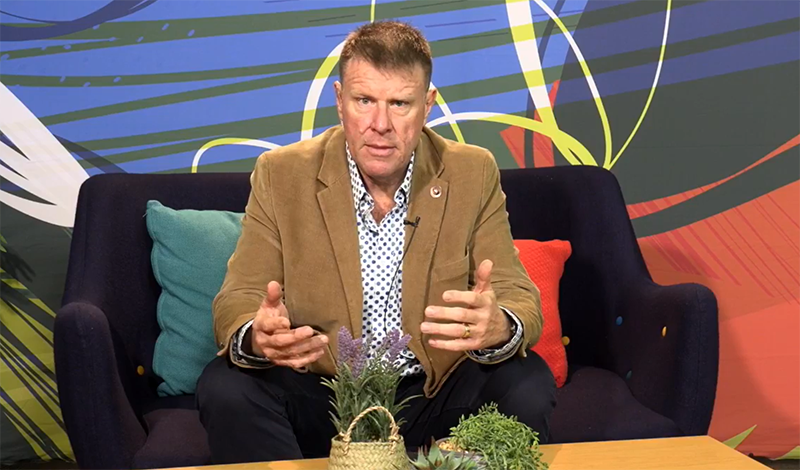At the Synod meeting (5 June) members have discussed the issue of Voluntary Assisted Dying.
Moderator Rev. Simon Hansford noted that he had convened a working group, led by Rev. Dr Chris Budden, to research the subject and consult with Synod members.
“We’re presenting this paper because this is an issue which engages and affects…people in our community and thus, in the church,” Rev. Hansford said.
When that process began, there was no legislation before the NSW Parliament. However, NSW Parliament is now expected to once again debate Voluntary Assisted Dying later this year.
“What started as being ahead of the game has slipped slightly,” Rev. Hansford said.
In the months ahead, the Synod will engage in discussions on the topic, across a number of different fora.
“This is more than a single issue,” Rev. Hansford said.
“This is about how we understand the value of human life, especially those who are not like us, whatever that means, in whatever context we live.”
“It’s about listening to voices of our first nations people and people who are culturally and linguistically diverse.”
He flagged consultations with theologians, ethicists, medical professionals, and scientists.
“This is not just an in-house conversation”
“This is about how we speak into…the wider community.”
“This is an opportunity to tend to our faith and to our theology.”
Members broke into ‘community groups’ for the discussion. As Moderator Rev. Simon Hansford indicated, these are distinct to discernment groups, as they are randomised and limited to six people. Chaplains were available.
Group discussion centred on three questions:
- Why and how does this issue matter for those who seek to live a Christian life?
- What sort of principles would the church wish to be in the legislation?
- How could Uniting or other agencies offer support to people who make a decision to end their life?
According to the discussion paper, the working group was,”[N]ot asking the Synod to make any decision either for or against” Voluntary Assisted Dying.”
“Our position is well reflected in the decision of the 2020 WA Synod: 3. (a) Acknowledges again that within the Church there is a diversity of faithful Christian understandings and responses to dying and to ‘voluntary assisted dying’ and we seek to live respectfully together in that tension; (b) Encourages its ministry agents, members and agencies to respect the freedom of people to hold different views with regard to the Voluntary Assisted Dying Act (WA) 2019 – ranging from conscientious objection to active endorsement. (Minute 26/2020).”
Uniting will speak to a later session of Synod about policies and practices. The issue of principles in legislation will be dealt with in August
Voluntary Assisted Dying legislation allows for medical staff to help terminally ill patients end their lives.
Legislation has already been adopted in Victoria and Western Australia. The laws place limits on when someone can be assisted in ending their own life, and require the person’s expressed consent.
Synod will next meet on Wednesday, 4 August and Saturday, 7 August. Insights will have full coverage.






3 thoughts on “Synod meeting discusses Voluntary Assisted Dying”
I am delighted that Synod is prepared to discuss this important issue. I hope Andrew Denton, or at least his podcasts, are consulted in this investigation. His research and insights would be invaluable.
SAFEGUARDS TO SATISFY
RELIGIOUS OBJECTIONS TO THE RIGHT-TO-DIE.
Often the most vocal objections to the right-to-die
come from religious conservatives
who believe that their faith
does not permit any life-ending choices.
Workable right-to-die laws
should be able to accommodate such objections.
What safeguards should be included
so that persons of faith would not feel threatened
by a new law allowing patients
to shorten the process of dying?
Could a new end-of-life law be crafted
so that it BEGINS with the end-of-life choices
favored by religious conservatives?
Almost all religions support COMFORT-CARE
at the end of life.
And most modern religions allow
WITHDRAWING CURATIVE MEDICAL TREATMENTS
when they no longer do any good.
If LIFE-SUPPORTS are sustaining the dying patient,
religious authorities usually would allow
all such methods to be withdrawn
when it is clear that life-supports
cannot save the patient from death.
>>>>>>>>>>>>>>>>>>>>>>>>>>>>>>>>>
Read more about religious objections:
https://s3.amazonaws.com/aws-website-jamesleonardpark—freelibrary-3puxk/SG-SIN.html
It might be wise to begin any campaign
for better end-of-life legislation
with the existing, recognized
medical pathways towards death.
Then the only change of law would be
adding one additional method
to the four already authorized:
https://s3.amazonaws.com/aws-website-jamesleonardpark—freelibrary-3puxk/MMMD.html
This is the pattern adopted by the country of France:
Quietly—with almost no public controversy—
France created a new end-of-life medical care act
that explicitly authorizes all modern methods of managing dying:
https://s3.amazonaws.com/aws-website-jamesleonardpark—freelibrary-3puxk/RTD-FR.html
When deciding which safeguard-procedures to include,
be sure to consider the safeguards most favored
by people who question making any life-ending decisions:
https://s3.amazonaws.com/aws-website-jamesleonardpark—freelibrary-3puxk/SG-CRITIC.html
_________________________________________________
Ch. J (3) Objections to the RTD—rev. 6-6-2021
Go to the Table of Contents for New End-of-Life Laws:
https://www.facebook.com/permalink.php?story_fbid=112807361001870&id=104763195139620
If I am in pain and dying I would like assistance to end the suffering as quickly as possible